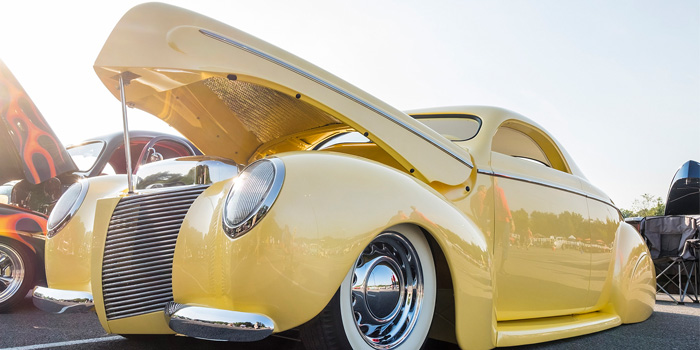>>(from Ford's PR which Don M. linked) .....The changes include getting rid of all cars in the region during the next four years except for the Mustang sports car and a compact Focus crossover vehicle, CEO Jim Hackett said as the company released first-quarter earnings.
.....The decision, which Hackett said was due to declining demand and profitability, means Ford will no longer sell the Fusion midsize car, Taurus large car, CMax hybrid compact and Fiesta subcompact in the U.S., Canada and Mexico.>>
What CEO Hackett is doing is something that should have been done several years ago. Analysts could see it; heck, I could see it – and I
like Fords.
- Taurus: a great sedan in its day (I owned one and loved it for ten years), but that day ended back around 1990.
- Fusion: owned a 2010 for 7 yrs. Not quite the Accord beater it needed to be. Decent, but oddly sized and got too far away from a good mid-priced driving experience that characterizes Honda, Acura, VW, Mazda.
- CMax: Right size and mileage, but unlike the bigger Ford models reliability was poor. Can't win the Prius game that way.
- Fiesta: This was always the 'overseas' car. Nobody with any sense would buy ANY American mfg subcompact. It's not their raison d'être, has never been a big profitable market segment, management hates them so any small car model is always an afterthought – a sop to mileage requirements.
Over the years we've bought Ford, Honda, Acura, Hyundai, Buick and Nissan. Loved the Acura, but some (not all, but some) of the Fords are easily the equal of the Honda and Hyundai. As the exchange rate see-saws to the US dollar, sometimes the advantage slides very heavily to US autos, assuming all else is equal.
The platform for the Fusion will continue to be used in the US. It's the base for their Escape and Edge SUV models (personal disclosure: I own the 2017 Edge Sport).
Also, saying that Japanese cars are superior in quality is an overstatement. Only Toyota and Honda made it into the Top 10 in CR's reliablity ratings*. Subaru managed a 6 ranking, but their most reliable car is the BRZ which is the joint Toyota/Subaru sportscar, of which Subaru sold a wimpy 4,131 in 2017 (in 2017 Ford sold 209K Fusions and Toyota sold 387K Camrys).
I live in an area where Subarus are common. I have never seen a single BRZ, ever.
BTW, selling sedans is not just Ford's problem. In Sept 2017 Honda unveiled its new Accord with big hoopla, saying it was hiring an additional 300 people in their US plant to handle increased production.
Here's what the markets thought of that: Wall Street Journal, April 27, 2018:
The Car of the Year That Few Americans Want
Despite winning North American Car of the Year at the Detroit auto show, sales lag for the Honda Accord
((excerpt) Sales of the Accord are down 12% in the first three months of the year compared with the corresponding period last year, when dealers were selling the old model. Meanwhile sales of its main competitor, Toyota Motor Corp.’s Camry, are up around 9%. That endangers Honda’s strategy of trying to grab a larger share of the shrinking sedan market and offset its inability to make enough sport-utility vehicles.
The company on Friday said its operating profit in North America fell 30% in the year ended March 31, and it said it would make some crossover sport-utility vehicles at an Ohio plant that makes Accords.
The problem is other Japanese car makers have the same idea—especially Toyota, which hopes it can expand its market share in sedans as competitors drop out.
Early signs suggest the winner is the car maker with the best deals—Toyota. The Accord, whose price starts at $23,570, had a 10% share of the midsize sedan market in the first three months of the year, while the Camry accounted for 15%, according to data from Jefferies. Toyota spent an estimated $2,557 on Camry incentives in March, compared with around $848 for the Honda Accord.
*
Car brands reliability ratings, Consumer Reports: https://www.consumerreports.org/car...ion/car-brands-reliability-how-they-stack-up/


